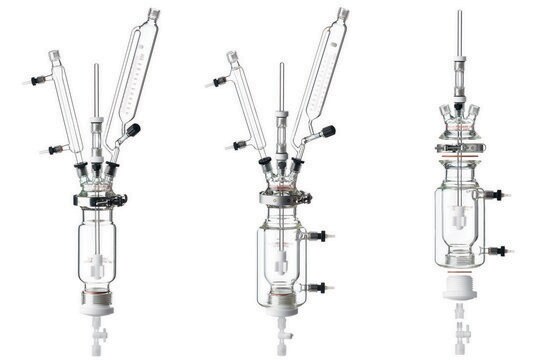HTMP2MAG-54K
MILLIPLEX® Human TIMP Magnetic Bead Panel 2 - Immunology Multiplex Assay
TIMP Bead-Based Multiplex Assays using the Luminex technology enables the simultaneous analysis of multiple TIMP biomarkers in human cell/tissue culture supernatant samples.
About This Item
Recommended Products
Quality Level
species reactivity
human
manufacturer/tradename
Milliplex®
assay range
accuracy: 77-95%
standard curve range: 10-10,000 pg/mL
(TIMP-4)
standard curve range: 20-20,000 pg/mL
(TIMP-1)
standard curve range: 49-50,000 pg/mL
(TIMP-2)
standard curve range: 98-100,000 pg/mL
(TIMP-3)
technique(s)
multiplexing: suitable
detection method
fluorometric (Luminex xMAP)
shipped in
wet ice
General description
The MILLIPLEX® Human TIMP Panel 2 Bead kit (TIMP-1, -2, -3, -4) has been designed for tissue/cell culture samples.
The Luminex® xMAP® platform uses a magnetic bead immunoassay format for ideal speed and sensitivity to quantitate multiple analytes simultaneously, dramatically improving productivity while conserving valuable sample volume.
Panel Type: Cytokines/Chemokines
Specificity
No significant cross-reactivity was observed among analytes in this panel.
Application
- Analytes: TIMP-1, TIMP-2, TIMP-3, TIMP-4
- Recommended Sample type: Tissue and cell culture supernatants
- Assay Run Time: One day or overnight
- Research Category: Inflammation & Immunology
Features and Benefits
Storage and Stability
Other Notes
Legal Information
Disclaimer
Signal Word
Warning
Hazard Statements
Precautionary Statements
Hazard Classifications
Acute Tox. 4 Dermal - Acute Tox. 4 Inhalation - Acute Tox. 4 Oral - Aquatic Chronic 2 - Eye Irrit. 2 - Skin Irrit. 2 - Skin Sens. 1 - STOT SE 3
Target Organs
Respiratory system
Storage Class Code
10 - Combustible liquids
Regulatory Listings
Regulatory Listings are mainly provided for chemical products. Only limited information can be provided here for non-chemical products. No entry means none of the components are listed. It is the user’s obligation to ensure the safe and legal use of the product.
JAN Code
HTMP2MAG-54K-03:
HTMP2MAG-54K:
HTMP2MAG-54K-02:
HTMP2MAG-54K-01:
HTMP2MAG-54K-04:
Certificates of Analysis (COA)
Search for Certificates of Analysis (COA) by entering the products Lot/Batch Number. Lot and Batch Numbers can be found on a product’s label following the words ‘Lot’ or ‘Batch’.
Already Own This Product?
Find documentation for the products that you have recently purchased in the Document Library.
Related Content
Immunoassays in cosmetics research assess product safety and effects on inflammation, aging, and tissue regeneration.
Immunology multiplex assays like MILLIPLEX® allow simultaneous investigation of immune biomarkers, saving time and resources in research.
Our team of scientists has experience in all areas of research including Life Science, Material Science, Chemical Synthesis, Chromatography, Analytical and many others.
Contact Technical Service







